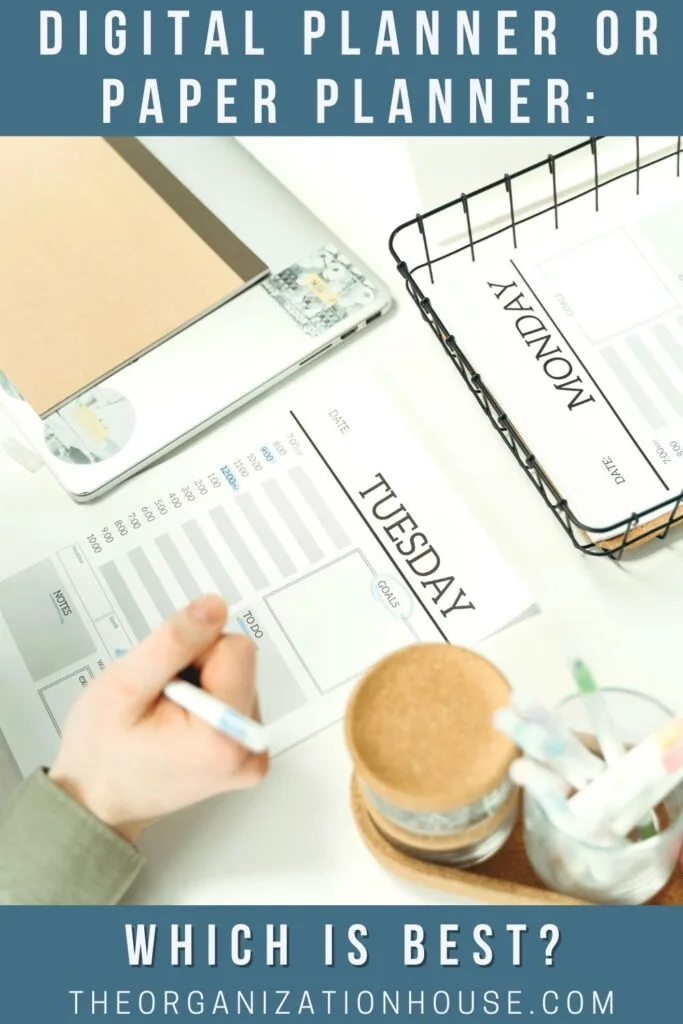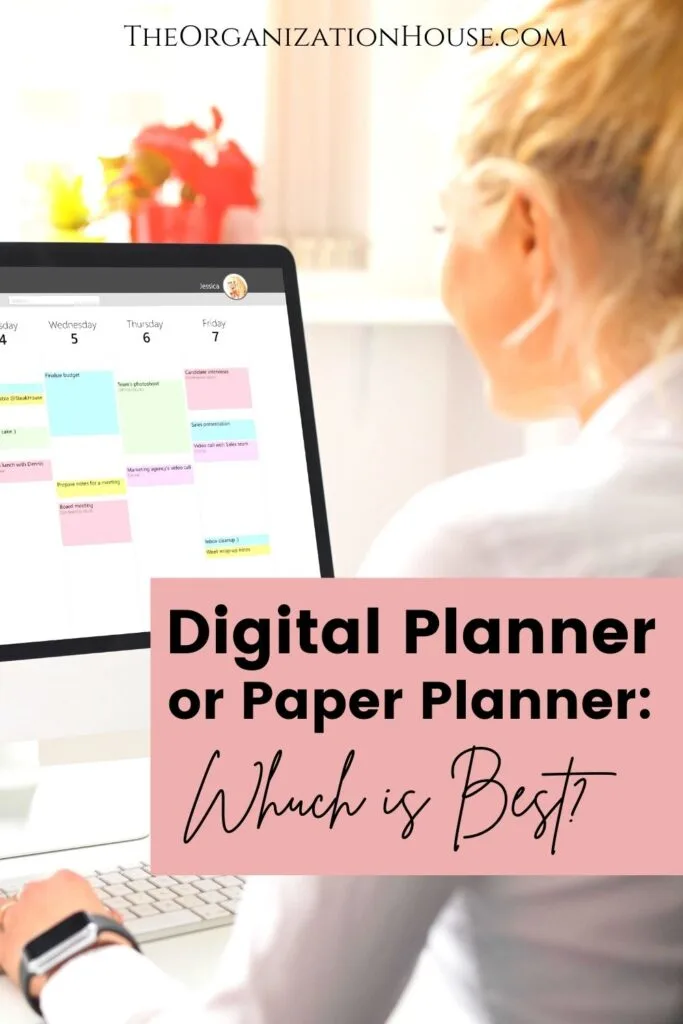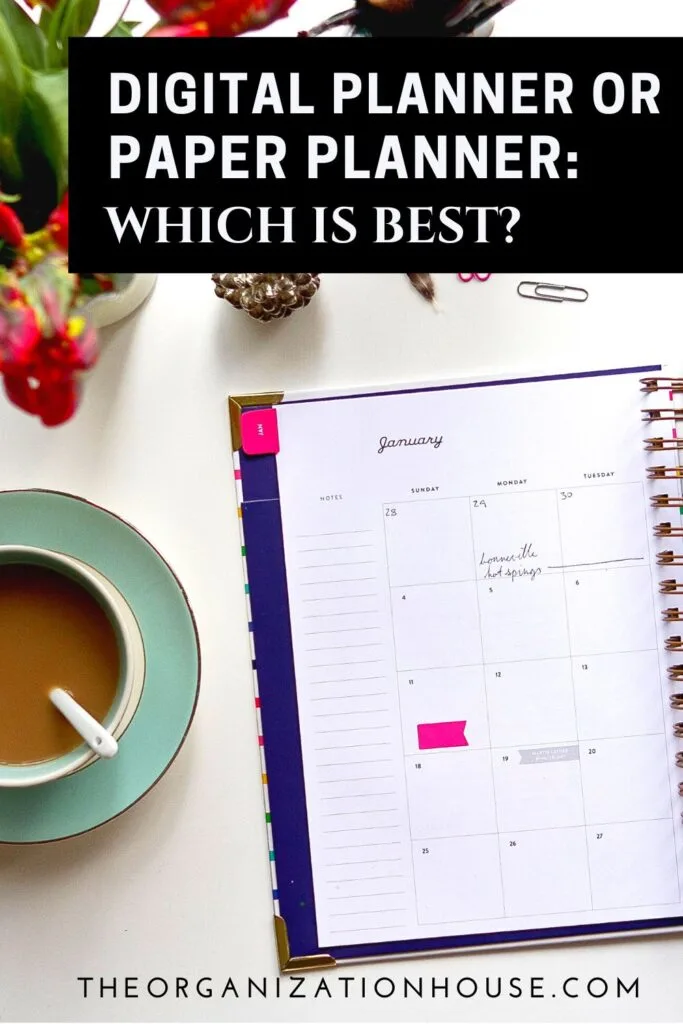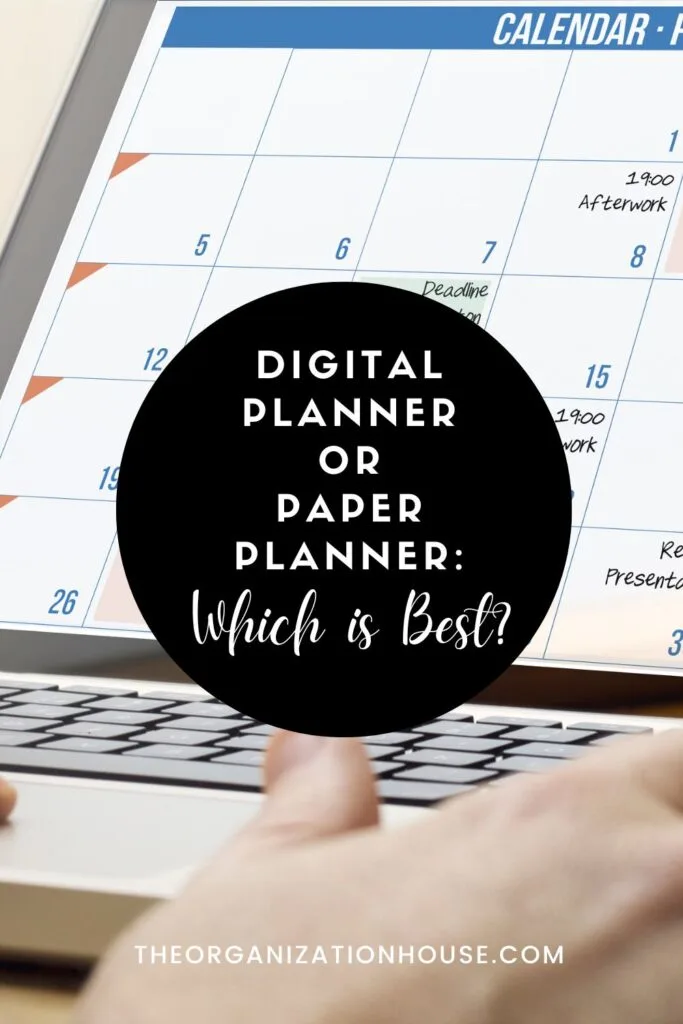Will a digital planner or a paper planner work best for you?

Whether you are a business professional, stay-at-home parent, or student, we are pretty positive that you already have some type of planning system. It could be a digital planner, a weekly organizer book, or even a colorful array of post-it notes stuck to whatever. No matter what sort of method you use to keep track of your life, we know that it’s most likely essential to your survival.
So, what do we really know about the types of planners that we choose to help guide us through life? Well, we know that the goal of any style of agenda or productivity journal is to stay organized. While this is the main idea, we want to take a closer look at the pros and cons of choosing paper or going digital.
Below are the good and the bad of each type of planner.

The Best Planner for You: Digital or Paper
The Lowdown on Digital Planners
Set Automatic Reminders
Digital planners come with the option of setting up notifications or reminders. This can be a benefit to digital planning by keeping you on top of responsibilities with a simple ding or ping. While automatic reminders are a fabulous feature of digital planners, they can also be counterproductive to your mission of staying current by notifying you with sounds that you have possibly become desensitized to.
Can Be Cost Effective
Choosing to go digital with your planning can potentially be more cost effective than opting for the traditional paper planner. There are some digital planners that are available for free or others come at a one-time cost, depending on what you’re looking for. This could save you money in the long run because digital planners are reusable, whereas paper planners are not.
Edit and Share with Ease
Making changes to your schedule is done with simple editing tools on a digital planner. Options such as delete, copy, and paste provide a flexibility that paper planners just don’t have. In addition to modifying information, digital planners can quickly connect and share with other people, as well as other platforms. This makes collaborating, planning, and scheduling super easy. The downside to this is if the apps are not working properly or information is not saved correctly, all arrangements could be lost.

My Favorite Digital Planner: Artful Agenda
My favorite digital planner is Artful Agenda (use code RB614567 for a free cover). I have always struggled with managing between the need for a paper planner and being able to see everything all at once and a digital planner that would allow me to take things on the go (since I am most often on the go!). Artful Agenda is the perfect fit! It works on both desktop and phone and looks like a real planner.
It allows me to see things in monthly, weekly, and daily formats, and includes space for three separate customizable categories (I set mine to: personal, my business, client work). There’s also space for meal planning, tracking water consumption, and more! Plus, you can easily change the covers and backgrounds to personalize them!
The list feature with check off bullet points is also super helpful!
You can check it out here and try their free trial to see if it’s a good fit for you! Use my referral code: RB614567 to unlock a FREE cover! (You have to manually type in the referral code to get your free cover!)

Paper Planners in Review
Improves Memory
It’s been proven that writing things down helps to strengthen memory, so keeping a paper planner will engage your brain in all the right ways. The literal act of writing something down stimulates the cells that process and retain information. This creates a connection between thinking and writing that digital planners just cannot do for you.
Minimizes Distractions
Writing in a paper planner has fewer distractions than that of a digital planner. There are no pop-ups or notifications to break your train of thought. Paper planners allow you to stay focused on the task at hand, which saves time and brain power.
Relieves Stress
Surprisingly, writing is quite therapeutic. Keeping a paper planner can reduce stress and improve overall well-being. Using a written planner will help to organize thoughts, strengthen problem-solving skills and increase creativity.

Choosing A Digital or Paper Planner
Choosing a planner, whether it be digital or paper, is one hundred percent a personal preference. While they both have an array of advantages, they also both have disadvantages to match. You’ll want to choose based on the type of planner that will work best for you and your needs. Whichever you decide, give it a real go for at least three weeks. This is long enough for you to use your new digital or paper planner and determine whether it’s a good fit.

